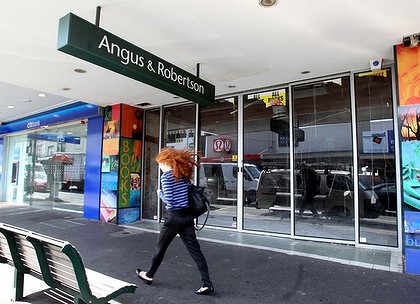Until eight years ago, neither Simon nor Alison Holst had used a slow cooker.
They thought that (like many other kitchen gadgets) slow cookers were just another ‘passing fad’, but maybe they should give them a try anyway – they quickly became slow cooker converts!
The incredible popularity of the Holsts’ first two slow cooker books 100 Great Ways to Use Slow Cookers & Crockpots and Year Round Recipes for Crockpots & Slow Cookers, which have sold over 360 000 copies, is testament to the fact there are many other slow cooker devotees out there too!
If you’re hooked on your slow cooker (or if you’re a novice) and are looking for more interesting and practical ideas to try in your slow cooker then All New Delicious Slow Cooker Recipes is for you! (Hyndman Publishing - $24.99)
Recipes include:
n Simple but hearty and satisfying soups
n Succulent simmered fish dishes
n Chicken recipes for any occasion from family dinners to festive fare
n New ways with mince and sausages
n Beef and lamb curries, casseroles and braises from around the world
n Tasty and tender ideas for pork
n Tempting sweet treats from Apple Crumble to Spiced Sago
Here is one for you to try:
SLOW-COOKED CHICKEN LAKSA (page 14)
We love laksa (creamy coconut-flavoured noodle soups). Although it is popular as a fast food option in the food courts found in New Zealand’s larger cities, or from street vendors in parts of Asia, we think this slow cooker version works very well too. Don’t be put off by the long list of ingredients as the method is really rather simple.
For 6 servings:
2 Tbsp canola oil
2 medium onions, quartered and sliced
2 cloves garlic, chopped
2–3cm piece root ginger, finely chopped
1 Tbsp curry powder
750g skinless boneless chicken thighs, diced
2 heaped Tbsp peanut butter
1 x 400ml can of light coconut cream
4 cups chicken stock (or 4 cups hot water plus 1 Tbsp instant chicken stock powder)
1 medium carrot, sliced
½ red pepper, deseeded and sliced
2 stalks lemongrass, halved
2–3 kaffir lime leaves
2 Tbsp light soy sauce
2 Tbsp brown sugar
1 Tbsp fish sauce
500g fresh egg noodles
2 cups green beans, fresh or frozen (thawed first)
Chopped coriander leaves and/or spring onion and/or a few beansprouts to garnish
Method:
· Heat the oil in a large pot (or suitable slow cooker insert) on your conventional stove top. Add the onion, garlic and ginger. Cook, stirring occasionally, until the onion has softened, then stir in the curry powder and cook for 1–2 minutes longer.
· Add the diced chicken and stir-fry for a couple of minutes until it loses its pink colour. Transfer the chicken mixture to the slow cooker (or place the insert in the slow cooker). Stir in the peanut butter and coconut cream, then add the remaining ingredients except the noodles and the garnishes.
· Cover, turn to LOW and cook for 6–8 hours or cook on HIGH for 3–4 hours. At the end of the cooking time, turn the slow cooker to HIGH, then add the noodles and beans and cook for 30 minutes.
The recipes, like this one, all carry the Holst trademarks - easy to prepare, taste great, good for you.

 The site formerly occupied by the Angus and Robertson bookstore at Dandenong Plaza. Photo: Michael Clayton-Jones
The site formerly occupied by the Angus and Robertson bookstore at Dandenong Plaza. Photo: Michael Clayton-Jones The Angus and Robertson store in Camberwell has closed down. Photo: Rebecca Hallas
The Angus and Robertson store in Camberwell has closed down. Photo: Rebecca Hallas



























